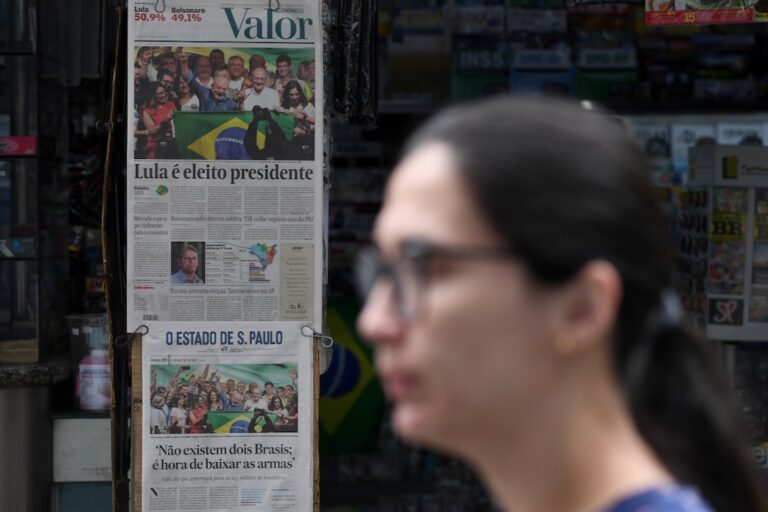(RSF/IFEX) – RSF has voiced its concern about the 3 June 2003 death of journalist Melyssa Martins Correia, of the daily “Oeste Notícias”, in Presidente Prudente (a town in São Paulo state). Martins Correia’s murder appears to have been prompted by the newspaper’s coverage of a criminal organisation. RSF Secretary-General Robert Ménard asked Sao Paulo […]
(RSF/IFEX) – RSF has voiced its concern about the 3 June 2003 death of journalist Melyssa Martins Correia, of the daily “Oeste Notícias”, in Presidente Prudente (a town in São Paulo state). Martins Correia’s murder appears to have been prompted by the newspaper’s coverage of a criminal organisation.
RSF Secretary-General Robert Ménard asked Sao Paulo Governor Geraldo Alckim to personally ensure that the murder is thoroughly investigated and that journalists are protected.
Martins Correia, aged 23, editor of the newspaper’s cultural supplement, was shot in the head at point-blank range. Still alive when found by police, she died while being rushed to hospital.
The killer fled by commandeering a car and getting the driver to take him to the neighbouring state of Mato Grosso do Sul. On the way, he reportedly told the driver, Fábio César Padoves, that he had been paid to kill the journalist, and that the murder of a judge, Antonio José Machado, in March was also a paid hit.
“Oeste Notícias” had covered the judge’s murder extensively, blaming it on a São Paulo criminal organisation known as Primero Comando da Capital (PCC), whose activities have often been the subject of reports in the newspaper.
Adolfo Padilha, editor of “Oeste Noticias”, said that a week before her death, Martins Correia had covered a promotional event in a supermarket reportedly owned by a PCC member. Police raided the supermarket the same evening and closed it down the next day. Padilha said he suspected the PCC may have thought Martins Correia went to the supermarket to get information on its activities and to denounce it. The police superintendent in charge of the investigation, Cacildo Galindo, said theft may have been the motive for the journalist’s murder, as her mobile phone and purse were taken.


